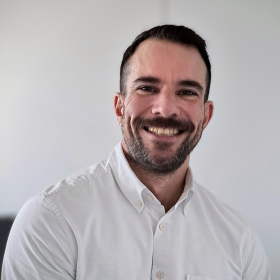

Ivan, Council of the EU
“I’ve been working as a lawyer-linguist at the Council of the EU for three years. In this role, we revise all EU legal acts that are to be adopted by the Council of the EU and the European Council, ensuring legal and linguistic consistency across all language versions. This allows me to combine my legal expertise with my passion for languages. I’m proud to contribute to the EU legislative process and to collaborate with fellow lawyers and assistants from nearly every Member State. There is a strong sense of community among us, and the atmosphere is always welcoming and supportive.”
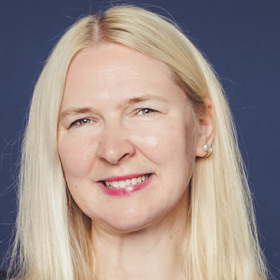
Liina, Council of the European Union
“Working in the Council of the EU has given me a great opportunity to be in the middle of the EU decision-making processes on tax policy. The Council adopts tax legislation by unanimity, therefore negotiations between 27 Member States can be difficult. Sovereignty and competitiveness of Member States are at stake. My task is to help the rotating Presidency in forging deals as an honest broker. Since every six months a new Presidency takes office, I have been able to experience different national administrations and working cultures - a very enriching experience.”

Bob, European Commission
“Since 2017, I have been working in the Directorate General for Competition, with the last 2,5 years focused on State aid and taxation. I particularly enjoy the wide variety of topics that my current job covers. In the end, there are many forms of taxation and tax is not limited to specific sectors or companies. From energy to retail and from VAT to corporate taxation, it is all part of my job. What I enjoy most in my current role is offering a helping hand on tax-related questions to other parts of the Commission.
The Directorate General for Competition is a dynamic, well organised service and a great place to work for both new and established colleagues. I really feel that my work/private life balance is respected here.”
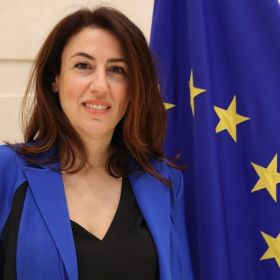
Evgenia, European Commission
“I have been working in taxation files in both indirect and direct taxation for 21 years, first in the public sector in Greece, then in the Economic and Financial Affairs (ECOFIN) Council and for the last 4 years in the European Commission after succeeding in the EPSO AD taxation competition. For me, working in the Commission means that ‘every day counts’. It counts because I am contributing, with my own policy reflections, analytical work and experience, collectively with other colleagues, to shaping EU taxation policy. Every contribution is a little step further in making the Single Market work in practice for citizens and business.”
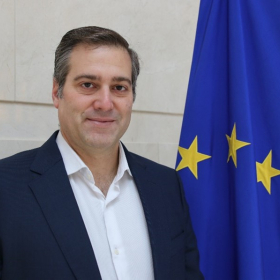
Luis, European Commission
“Working for the European Commission is a transformative experience. Since joining, I have participated in high-level policy discussions, both internally and with other EU institutions. Engaging in interinstitutional relations opens a world of opportunities within the EU framework. In my current position I’m able to positively influence EU policies by shaping and coordinating briefings and speeches for my Director-General and EU Commissioners. The work environment is highly collaborative, allowing me to interact with colleagues from diverse cultural and professional backgrounds. Joining the European Commission is an enriching experience which has broadened my horizon and enhanced my professional and intellectual growth.”
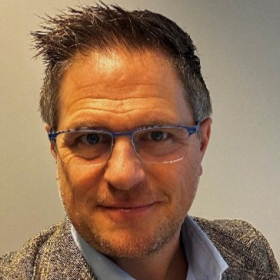
Rainer, European Commission
“As a policy officer in the European Commission's Directorate-General for Taxation and Customs Union (DG TAXUD), I manage CESOP, an IT system designed to combat e-commerce tax fraud. I contribute to improving business compliance when trading with EU citizens and companies. I am proud to be able to influence the creation of legal and technical tools enhancing tax fraud detection, together with Member States and international organisations, such as the OECD and Europol. After over nine years in DG TAXUD, I appreciate the unique, inspiring, joyful and challenging opportunities to work in a multicultural community, where colleagues and managers show respect for individual work and personality.”
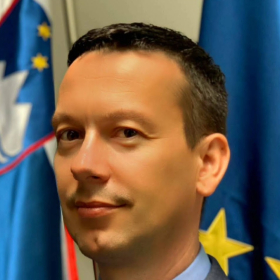
Matija, Council of the EU
“At the Legal Service of the General Secretariat of the Council, I have the opportunity to collaborate closely with colleagues from all EU Member States, working in all EU languages, and contributing to the quality of EU legislation.
As a lawyer-linguist, I especially enjoy working as a quality advisor and ʻchef de fileʼ, overseeing a team of lawyers and other administrators within the Council and from other institutions to legally and linguistically finalise the base language (English) version of legislative files. In these roles, strong coordination and leadership qualities are essential to completing all tasks within tight deadlines.”

Sibila, European Parliament
“I have been working as a lawyer-linguist in the Bulgarian section of the Directorate for Legislative Acts at the European Parliament for almost 10 years. This is my first job within the European institutions, and I continue to value the diverse range of tasks I am involved in.
The core of my work is to revise EU legislative acts that are to be adopted by the Parliament and the Council, ensuring both their legal and linguistic accuracy. My role is to guarantee the highest possible quality of legislative texts while making EU law accessible and understandable across all Member States. This job allows me to work in both English and my native language, which I greatly appreciate. In addition, as a lawyer-linguist, I can contribute to the clarity and precision of EU legislation by advising Members of the European Parliament on legal drafting. Being part of the European Union law making process is highly rewarding and fulfilling.
The variety of tasks and the collaborative environment make the lawyer-linguist job dynamic, interactive, and satisfying. Moreover, my colleagues are multicultural, pleasant and supportive.”

Barry, European Parliament
Working as a lawyer-linguist at the Directorate of Legislative Acts in the European Parliament allows me to use my languages and legal expertise to play a vital role in the democratic process of the Union.
One of the most rewarding aspects of my job is advising Members of the European Parliament on legal drafting, helping to shape the legislation that affects millions of Union citizens. I really feel that I am at the heart of European law making!
The collaborative, multilingual environment makes every day intellectually stimulating, and I take great pride in ensuring that Union law is accessible to all.
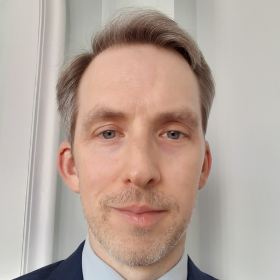
Nelius, European Commission
“Working for the Quality of Legislation (LEG) team at the Legal Service is to be part of a highly professional and inspiring team.
We constantly seek and find the best way to apply drafting rules to exciting aspects of Union life such as the Covid crisis, rules on chemicals, the environment, health and safety protection, and finance. There is a strong reliance on team discussions to achieve the best approach for new situations – and discussions are invariably collegial and fruitful: no colleague is alone, we find solutions together.
On a daily basis, I feel that my colleagues and I are playing a meaningful, useful and vital role in Union law, and in participating in the project of an ever-closer Union, for citizens and businesses, in all 24 languages.”

